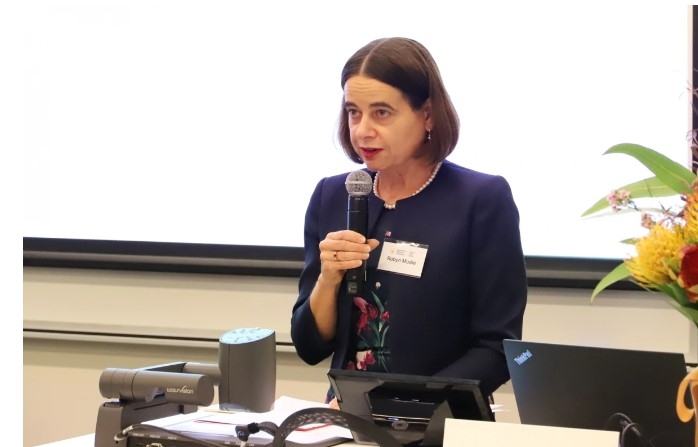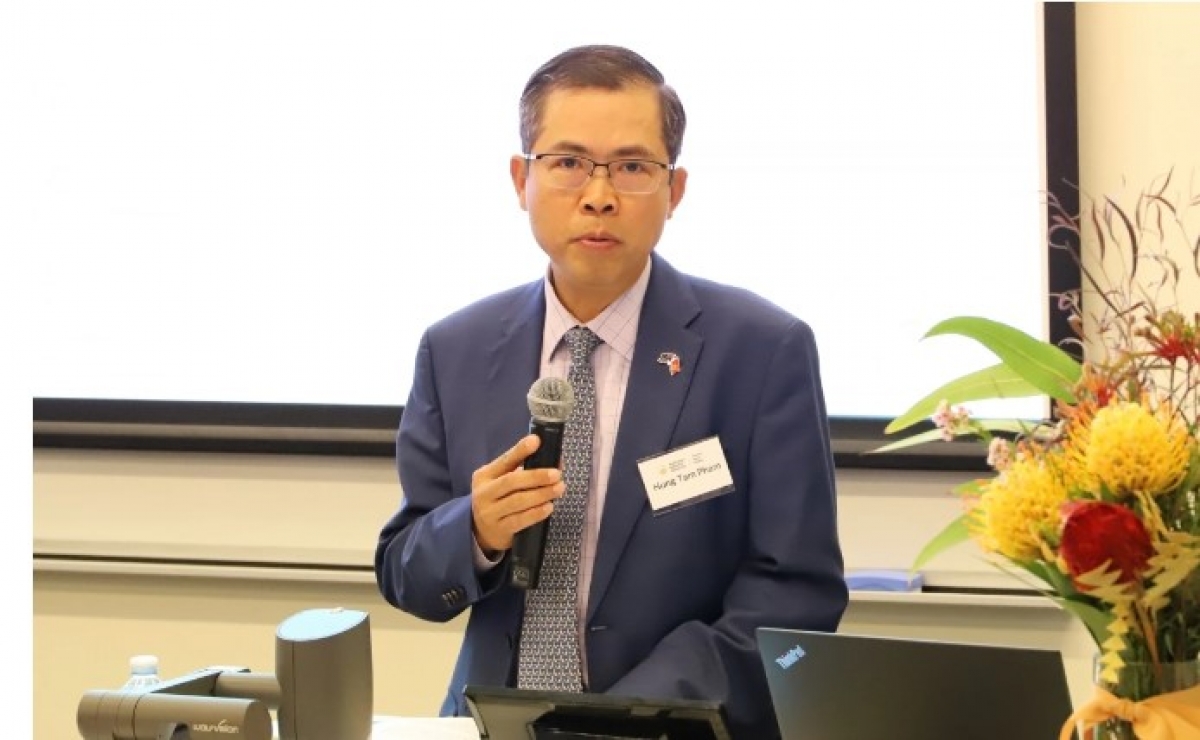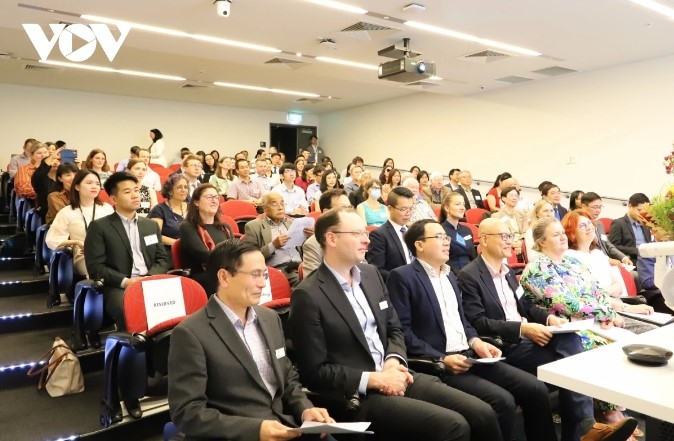Australia shows interest in Vietnam's "rising era" vision
VOV.VN - The growing relationship between Australia and Vietnam is making more and more people working in various fields from policy makers, to entrepreneurs and even researchers want to get updates on the situation in Vietnam, including the "rising era" vision.
The Vietnam Policy and Economic Update Conference 2024 conference held in Canberra on December 6 provided a lot of information regarding new policies and developments in Vietnam in recent times, in which Australia is highly interested in the changes taking place in Vietnam at present.
More than 150 policy makers, business representatives, researchers, scholars and those interested in Vietnam attended the event organized by the Australian National University under the sponsorship of the Australian Department of Foreign Affairs and Trade (DFAT).
In her speech, Robyn Mudie, First Assistant Secretary for the Southeast Asia Regional and Mainland Division at the Department of Foreign Affairs and Trade of Australia, and former Australian Ambassador to Vietnam said Vietnam plays an important role in the economic development of Southeast Asia and shared the vision of a peaceful, stable and prosperous region. Relations between the two countries are growing steadily across multiple areas, she added.
In this context, Robyn Mudie emphasized that it is very important for Australia to update Vietnam's new policies because this is not only a way to share information and knowledge but also an opportunity for experts and scholars to expand their networks and contribute to the relationship between the two nations.

At the conference, Vietnamese Ambassador to Australia Pham Hung Tam also gave updates on Vietnam's achievements in 2024, notably the GDP growth rate that could reach 6.1%. Notably, registered foreign direct investment by October exceeded US$27 billion and is continuing to rise. In October alone, Vietnam welcomed 1.4 million foreign tourists, he added
The Vietnamese diplomat also shared the vision of the rising era recently announced by Party General Secretary To Lam to develop Vietnam into a strong and prosperous nation.
He expressed his confidence that Australia's updates on new policies and situations in Vietnam will help promote mutual understanding, thereby contributing to the development of partnership and cooperation between the two countries.

At the event, professors and experts in Vietnamese study from the Australian National University, Indiana University of the US, and the National Economics University of Vietnam informed about the latest changes in the apparatus, policies and economic reforms in Vietnam and the impact of these policies on the stock market, price regulation, the environment, health, renewable energy, how to escape the middle-income trap, and the balance between agricultural development and the ecosystem in the Mekong sub-region.
The presentation by Prof. Dr. Tran Ngoc Anh from Indiana University on the 7 strategic orientations outlined by Party General Secretary To Lam in a bid to bring Vietnam into the rising era captured great attention from participants.
According to Prof. Dr. Tran Ngoc Anh, Australia considers Vietnam a strategic partner in terms of politics, security and economy. Over the years Australia has continuously supported Vietnam, therefore, this country continues to pay attention to the drastic changes that Vietnam has started to carry out recently.
"Australia wants to understand the core content of this [rising era] vision, how Vietnam plans to achieve it, and what needs to be done. From Australia’s side, I believe they sincerely want to support Vietnam's success and are eager to identify ways they can contribute to Vietnam's goals in this new era.” Tran Ngoc Anh stated.
As an expert with many years of research on the Vietnamese economy during the renewal (Doi Moi) process, Professor Suiwah Leung of the Australian National University is highly interested in changes in political landscapes in Vietnam and hopes that these changes will boost the development of the private economy.
According to Suiwah Leung, the relationship between the Party and the elements in the political apparatus and the private economy is very important. Currently, the private economy plays a larger role in the Vietnamese economy and is increasingly integrating with the world economy.
"I believe the relationship between the Party, government institutions, and the private sector is crucial. Currently, the private sector plays an increasingly significant role in Vietnam’s economy and is becoming more integrated with the global economy. The interplay between these three elements is vital, as the Party and government institutions need to facilitate private sector development. Therefore, I’m particularly interested in how the Party (the tree's roots) and the government (the trunk) can create conditions for the private sector (the leaves) to thrive."
Professor Paul Burke, an expert on energy transitions in Southeast Asia, expressed interest in Vietnam’s ongoing reforms and their potential to promote development. While noting that detailed plans for transformative breakthroughs are still emerging, Burke hailed the country’s huge development potential: "This is an exciting time for Vietnam, as it implements proposals to restructure some ministries and boost economic performance. While more details are needed on how these plans will strengthen the economy, it’s clear that this moment presents significant opportunities for Vietnam. I am particularly interested in the role of clean energy in Vietnam’s economy. Vietnam has immense potential in this area, as well as in sectors like education, healthcare, and technology. While more information is needed, there’s no denying Vietnam’s potential to achieve robust growth."




